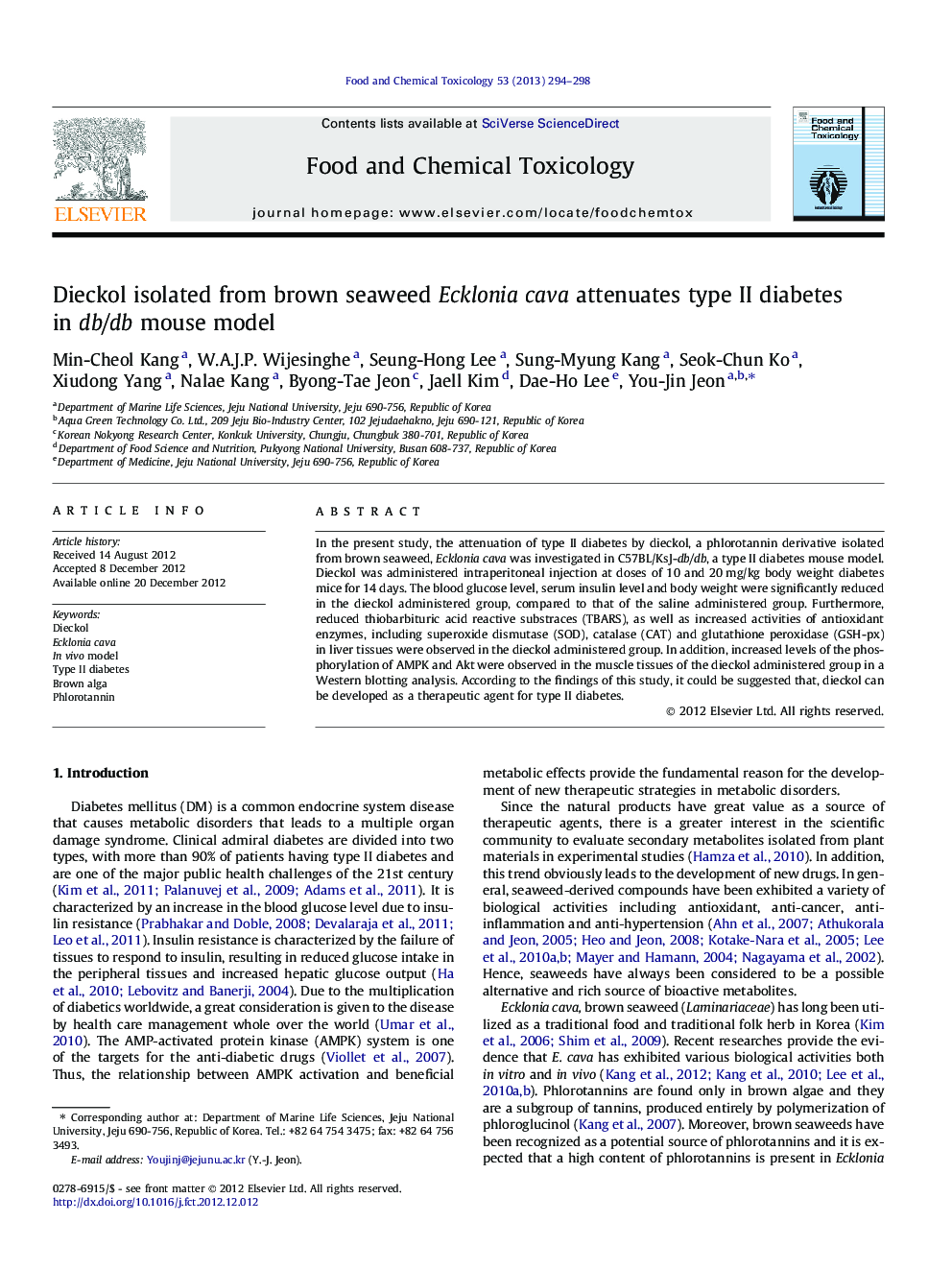| Article ID | Journal | Published Year | Pages | File Type |
|---|---|---|---|---|
| 5851381 | Food and Chemical Toxicology | 2013 | 5 Pages |
In the present study, the attenuation of type ÐÐ diabetes by dieckol, a phlorotannin derivative isolated from brown seaweed, Ecklonia cava was investigated in C57BL/KsJ-db/db, a type ÐÐ diabetes mouse model. Dieckol was administered intraperitoneal injection at doses of 10 and 20Â mg/kg body weight diabetes mice for 14Â days. The blood glucose level, serum insulin level and body weight were significantly reduced in the dieckol administered group, compared to that of the saline administered group. Furthermore, reduced thiobarbituric acid reactive substraces (TBARS), as well as increased activities of antioxidant enzymes, including superoxide dismutase (SOD), catalase (CAT) and glutathione peroxidase (GSH-px) in liver tissues were observed in the dieckol administered group. In addition, increased levels of the phosphorylation of AMPK and Akt were observed in the muscle tissues of the dieckol administered group in a Western blotting analysis. According to the findings of this study, it could be suggested that, dieckol can be developed as a therapeutic agent for type ÐÐ diabetes.
⺠Anti-diabetes effect of dieckol isolated from Ecklonia cava was investigated. ⺠The anti-diabetes effects were determined via AMPK pathway in db/db mouse model. ⺠Dieckol can be developed as a natural nutraceutical to prevent type ÐÐ diabetes.
